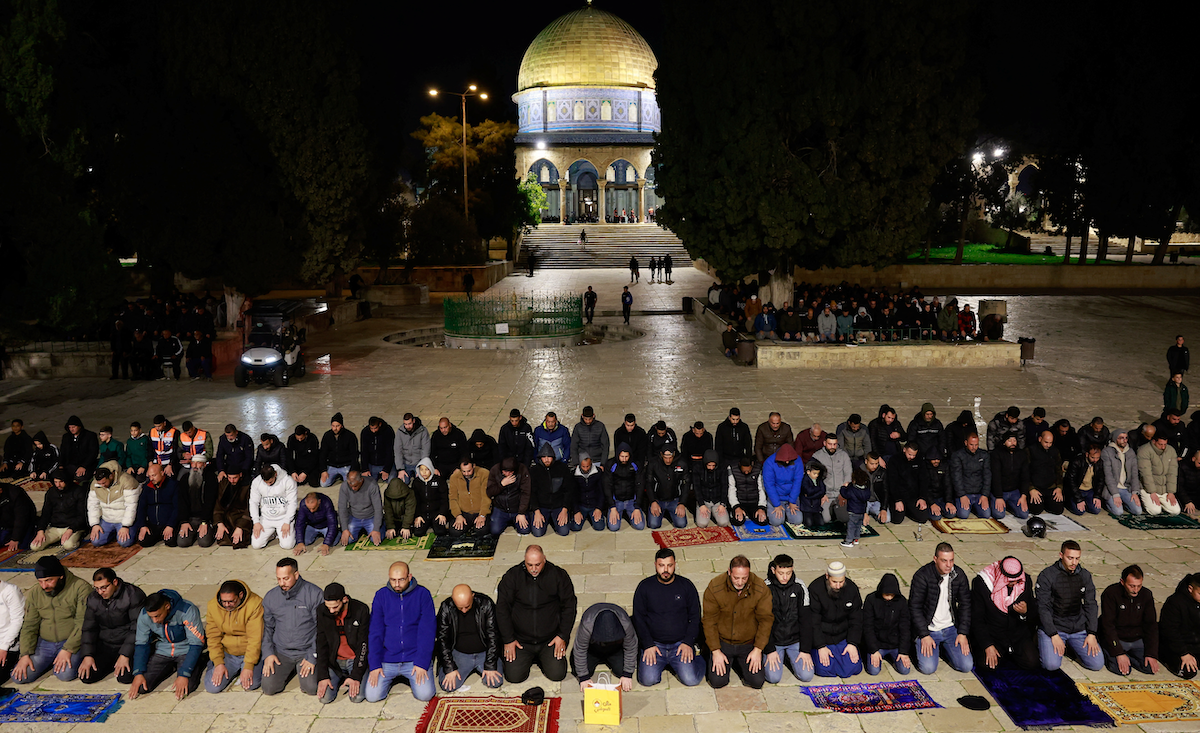Jordanian Foreign Minister Ayman Safadi said Monday that the restrictions Israel is imposing on access to Jerusalem’s Al-Aqsa Mosque, which Jews call the Temple Mount, during Ramadan could lead to an “explosion.” Israeli police reportedly stopped thousands of Palestinians from praying at Islam’s third-holiest site on the first night of Ramadan, occasionally using batons to beat back crowds.
Israeli police said the unrest was an isolated incident, and thousands of Muslims were able to attend Ramadan prayers at the mosque last night.
The compound has long been a flashpoint for violence, and Safadi said the West Bank is already “boiling.” Since the outbreak of the war in Gaza, some 400 Palestinians in the West Bank have died in clashes with Israeli forces and armed settlers. Should tensions boil over into an uprising, even more bloodshed is likely.
The question hinges, in part, on Rafah. Prime Minister Benjamin Netanyahu said Sunday he was still planning to go forward with a ground offensive — but nothing has happened yet, and the Ramadan deadline set by Israel’s war cabinet has passed. Amid growing international pressure to relieve civilian suffering, Netanyahu knows an invasion risks anger at home and abroad.
An invasion is also complicated by increasing international efforts to provide aid to Gaza, as foreign personnel — soon including US military on the promised floating pier — caught in the crossfire could further isolate Israel.
One example: On Tuesday, a ship carrying 200 tons of food set off for Gaza from a Cyprus port. The ship, the Open Arms, belongs to a Spanish charity and is part of a pilot mission funded largely by the United Arab Emirates and organized by the US World Central Kitchen organization.
For more on Israel’s impasse, watch Ian Bremmer’s Quick Take for GZERO here.
